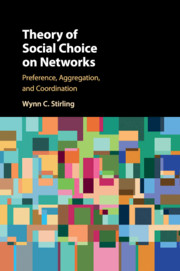Book contents
- Frontmatter
- Dedication
- Contents
- List of Figures
- List of Tables
- Preface and Acknowledgments
- Introduction
- 1 Preference
- 2 Aggregation
- 3 Deliberation
- 4 Coordination
- 5 Randomization
- 6 Satisficing
- Appendix A Dutch Book Theorem
- Appendix B Bayesian Networks
- Appendix C Probability Concepts
- Appendix D Markov Convergence Theorem
- Appendix E Entropy and Mutual Information
- Bibliography
- List of Authors
- Index
3 - Deliberation
Published online by Cambridge University Press: 05 September 2016
- Frontmatter
- Dedication
- Contents
- List of Figures
- List of Tables
- Preface and Acknowledgments
- Introduction
- 1 Preference
- 2 Aggregation
- 3 Deliberation
- 4 Coordination
- 5 Randomization
- 6 Satisficing
- Appendix A Dutch Book Theorem
- Appendix B Bayesian Networks
- Appendix C Probability Concepts
- Appendix D Markov Convergence Theorem
- Appendix E Entropy and Mutual Information
- Bibliography
- List of Authors
- Index
Summary
What is the shortest word in the English language that contains the letters: abcdef? Answer: feedback. Don't forget that feedback is one of the essential elements of good communication.
— AnonymousAfter their unsuccessful attempt to choose a restaurant as discussed in Example 2.1, the Three Stooges re-think their strategy. It occurs to them that whatever Larry wants, Curly does not want, and whatever Curly wants, Mo does not want. In an unfortunate attempt to resolve the impasse, Larry decides that he wants to reconsider: whatever Mo wants, he now does not want. Suppose, to start with, Larry announces his utilities, which are in favor of F. Curly then processes this information according to his conditional utilities, and announces he prefers I. Mo follows with favoring F, which then causes Larry to now favor I. Thus, after one cycle, Larry has changed his mind. Feeling a bit frustrated, but having nothing better to do, they continue the process. Eventually, they notice that their preferences are not changing at all! In fact, each one has exactly the same utility values – they are all indifferent between French and Italian dining. So they flip a coin and happily go off to dinner together (only to find that the restaurant is closed for the night).
Larry, Curly, and Mo have created an influence cycle, illustrated in Figure 3.1. This is not a preference cycle; it is not a manifestation of non-transitivity. An influence cycle is a form of deliberation, where the participants engage in dialogue in an attempt to negotiate a solution. By so doing, they have moved from a static situation, where all preferences are expressed simultaneously, to a dynamic situation, where preferences are expressed dynamically and are therefore subject to change.
This example illustrates an important extension to social choice theory – the ability to deliberate. If all individuals come to a social engagement with fixed and immutable preferences, then deliberation is not possible. Indeed, there would be no reason to deliberate, because, it is assumed, each individual has already determined its own individual preferences, and has no overt concern for the welfare of others. Essentially, each individual is in a defensive position in the sense that the preferences of others can only constrain one's own welfare. But that hypothesis does not apply when social influence exists.
- Type
- Chapter
- Information
- Theory of Social Choice on NetworksPreference, Aggregation, and Coordination, pp. 74 - 95Publisher: Cambridge University PressPrint publication year: 2016



